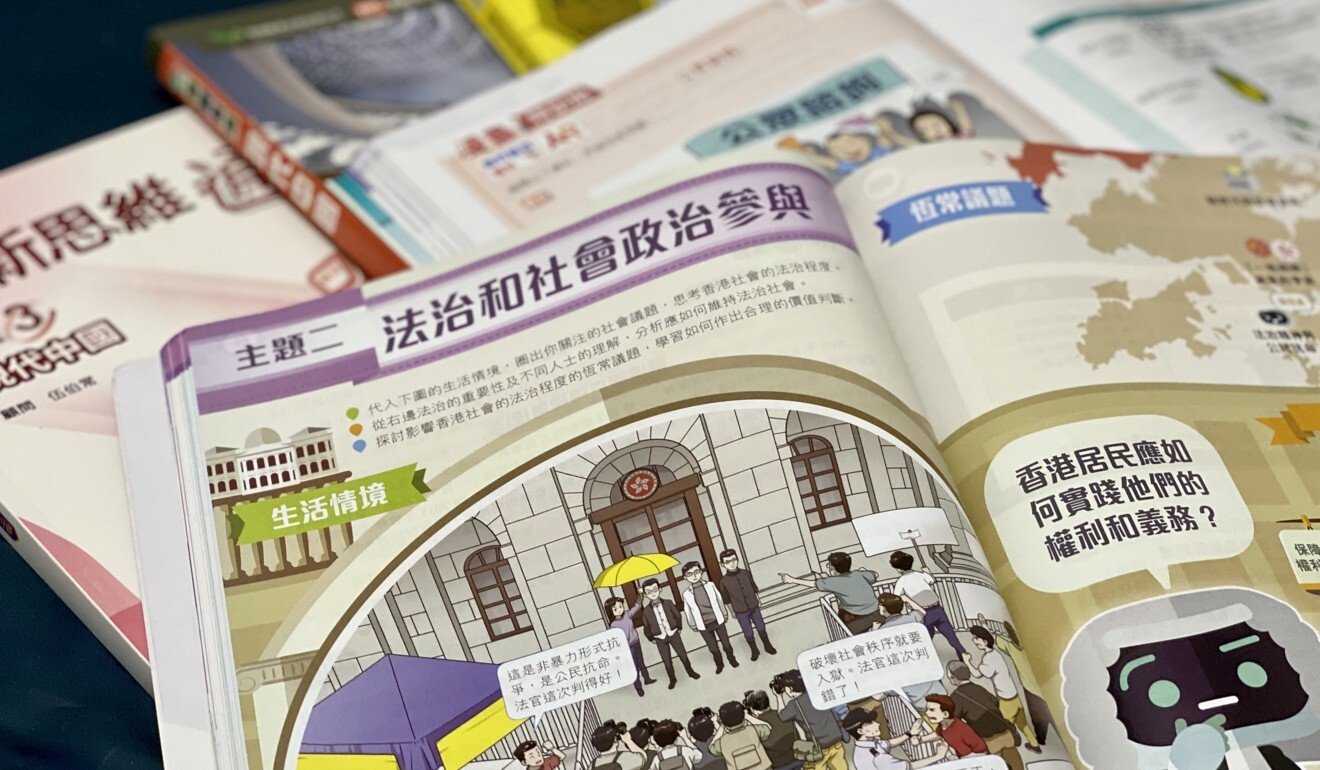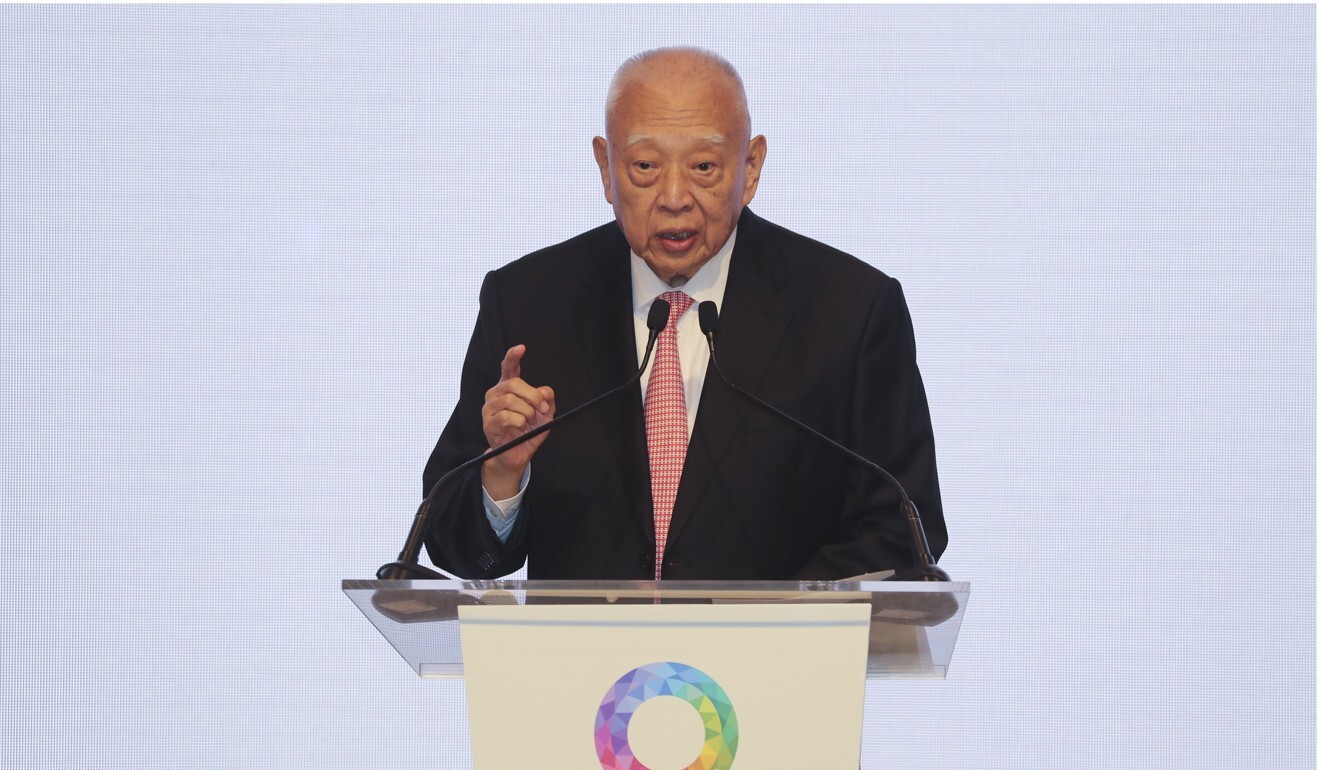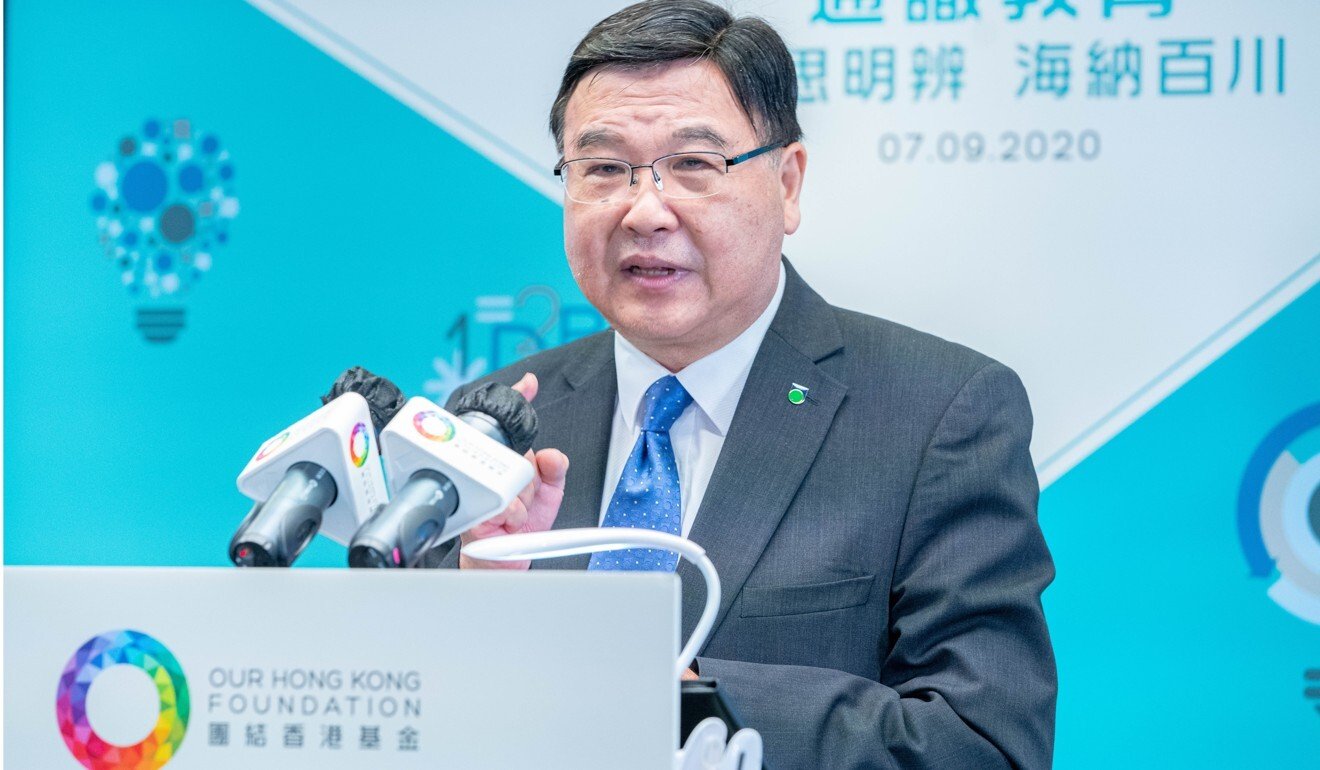Our Hong Kong Foundation by Tung Chee-hwa says controversial subject’s books should be scrutinised by government to avoid purported bias.
Most of the teaching materials for the controversial liberal studies
subject should be vetted by the government in the long run to ensure
there is no bias, according to a think tank founded by a former Hong
Kong leader who described the curriculum as a “failure”.
But a
survey by Our Hong Kong Foundation found 43 per cent of liberal studies
teachers opposed the idea of scrutinising textbooks, while almost half
did not think there was a problem with the impartiality of existing
materials.
The think tank, founded by former chief executive Tung
Chee-hwa, also suggested on Monday that while liberal studies should
remain a compulsory subject in high school, grading should be switched
to a simple pass or fail to allow pupils more flexibility.
Introduced
as a core subject for senior secondary students in 2009, liberal
studies has become controversial in recent years, with pro-establishment
groups saying some teaching materials are biased while politicians
blame it for making pupils more radical.

Tung,
vice-chairman of the nation’s top political advisory body, was among
those who criticised the subject last year for purportedly encouraging
young people to join violent anti-government protests, while saying its
curriculum was a failure.
The Education Bureau introduced a
“voluntary consultation service” last year, with the first batch of
vetted liberal studies textbooks in use this term removing some
politically sensitive cartoons and phrases such as “separation of
powers” in the description of the city’s governing system.
Critics said the changes were “political censorship”, an accusation the bureau dismissed.
The
foundation proposed the government vet the books to ensure accuracy and
objectivity, and said pupils should avoid getting their information
only from news and social media. But it also said there was no need for
school-based materials prepared by individual teachers to be checked.
Stephen
Wong Yuen-shan, the think tank’s deputy executive director and head of
its public policy institute, said originally there was no scrutiny or
vetting because the subject had been designed to encourage teachers not
to use textbooks.
“But the reality is that most of the teachers …
are actually using them,” Wong told a press conference. “Therefore, we
thought that it would make sense to align this subject just like any
other subjects in Hong Kong high schools where the textbooks would be
vetted by officials.”

The
think tank said the bureau should make transparent and practical
vetting guidelines public while the scrutiny should ideally also cover
workbooks and listening materials.
Wong cited a
foundation-commissioned survey conducted by Lingnan University’s public
governance programme between May and July this year, which showed 87 per
cent of the 484 liberal studies teachers polled relied on textbooks as
one of their main teaching materials and 39 per cent used social media
as their primary teaching sources.
The survey, however, also
found only 21 per cent of teachers believed there was a problem with
views being biased in existing liberal studies textbooks. Nearly 50 per
cent said otherwise.
More than 43 per cent said they disagreed or
strongly disagreed that the bureau should examine textbooks to ensure
the views expressed were neutral and balanced. About 39 per cent either
supported or strongly supported the idea.
In the same survey,
about 33 per cent of the 71 principals polled found the textbooks were
impartial, while 11 per cent disagreed. More than 83 per cent, however,
supported government textbook vetting to ensure the content was
balanced.

Report
lead adviser Wong Yuk-shan, president of Open University and a National
People‘s Congress deputy, meanwhile, said although nearly 80 per cent
of teachers used newspapers and magazines as teaching materials, many
news reports were “biased” and not a form of knowledge.
“These biased and sensational reports cannot help students distinguish right from wrong,” Wong said.
The
think tank also suggested that the subject’s current grading system –
based on seven levels from 1 to 5**, the top mark – should be changed to
a pass or fail. It said that could let pupils “get the most out of the
learning process”.
Students would then “be able to find
motivation beyond a readily quantifiable and subjective grade to engage
in self-directed learning, self-assessment and self-regulation”.
Tin
Fong-chak, a liberal studies teacher for a decade and vice-president of
the 100,000-strong Professional Teachers’ Union, however, disagreed
with changing the grading system. Many pupils could lose the motivation
to study as a result, he said.
Tin also said the mandatory scrutinising of textbooks could lead to “content inclined to supporting the government”.
“If
every textbook has to be endorsed by the authorities then, in other
words, we no longer can discuss many topics in classrooms,” he said.
A
bureau spokeswoman said its task force would submit a final review
report on the school curriculum, including liberal studies, to the
bureau this month, and adjustments would be considered.















